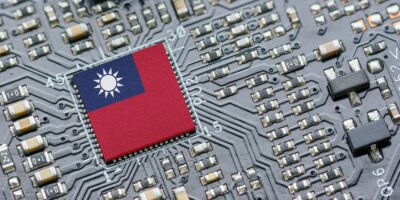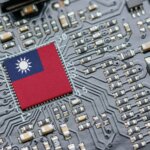
South Korea views the US Chips Act as a drag. Can an ally advise the US against it?Source:Shutterstock
South Korea views the US Chips Act as a drag. Can an ally advise the US against it?
- South Korea’s trade minister reckons the US Chips Act could make America a less attractive investment destination.
- The minister plans to meet with senior officials from the US Commerce Department and White House and officials from significant think tanks to discuss the Chips Act.
To revive and strengthen the local semiconductor industry, the US government is providing American chipmakers US$52 billion in funding under the Chips Act legislation. Monetarily it had enticed many semiconductor players, be they local or foreign. Still, when the US Commerce Department unveiled the terms of the subsidies last week, it was different from what the industry had expected.
To get billions of dollars from the government, according to the commerce department guidelines released last week, companies will have to agree to various terms, including not expanding their manufacturing in China, sharing profits, and providing affordable childcare. To the South Korean government, there are too many strings attached, and frankly, the Asian country is not the only one who thinks so.
The new subsidies aim to build a leading-edge semiconductor industry in the US, where the industry has long been behind. However, for South Korean chipmakers such as Samsung Electronics and SK Hynix, the Chips Act is leaving them worried about the implications since they have plans to build plants in the US while still heavily relying on chipmaking operations in China.
Seoul’s former trade minister Yeo Han-koo told Financial Times last week that the clause about excess profit-sharing seemed “problematic,” calling it an “unprecedented move charting a new territory that we haven’t seen in recent years.” He believes that “many companies may cry out on this. It may set a worrisome precedent for other countries who may follow suit.”
How is South Korea planning to circumvent the Chips Act?
South Korea’s current trade minister Ahn Duk-geun said he plans to meet with senior officials from the US Commerce Department and White House and officials from major think tanks to discuss the Chips Act. He believes the US Chips Act could make the country a less attractive investment destination.
“The South Korean government will make it clear that the conditions of the Chips Act could deepen business uncertainties, violate companies’ management and technology rights as well as make the United States less attractive as an investment option,” the trade ministry said, according to Reuters. Some experts even feel that the so-called profit-sharing clause is essentially taking what was given in terms of subsidies – thus making the whole process redundant.
In the US defense, many of the requirements in the program are intended to safeguard taxpayer investments and give awards based on rigorous financial analysis and due diligence. “We are not writing blank checks to any company that asks,” Commerce Secretary Gina Raimondo said last week. What the US essentially wants is to attract more chip production facilities.
According to the Commerce Department, the US also aims to create at least two manufacturing clusters for cutting-edge semiconductors by 2030. Samsung and SK Hynix, the world’s two largest memory chip makers, have existing expansion plans in the US. Samsung is building a US$17 billion contract chip-making factory for cutting-edge semiconductors in Taylor, Texas.
SK Group, the owner of SK Hynix, pledged last year to invest US$15 billion in semiconductor research and development and facilities for advanced packaging in the US. In addition to Samsung and SK Hynix, other top candidates for the subsidy program include Taiwan Semiconductor Manufacturing Co., the world’s largest contract chip maker, and Intel Corp.
As it is, TSMC executives have voiced concerns about the financial downsides and challenges of re-creating their supply chain in the US. TSMC founder Morris Chang has said the costs of making chips in Arizona, where the company is building a cutting-edge chip factory, maybe at least 50% higher than in Taiwan.
All the companies mentioned above are already facing dilemmas over managing their operations in China after the US restricted exports to China of advanced chips and the equipment used to produce them. Fortunately, the US granted TSMC, Samsung, and SK Hynix one-year exemptions from those rules, which were imposed last year, with no clear indication of what would happen at the end of that period.
In a PwC report titled ‘The CHIPS Act: What it means for the semiconductor ecosystem,’ experts advised semiconductor companies to carefully consider whether the potential value of federal funding would sufficiently offset these geographical manufacturing constraints. “Geopolitical uncertainty, combined with recent dramatic shifts in the market, requires companies to make careful assessments about their place in the semiconductor value chain and how they can improve their position — not just for agility today, but for stability tomorrow,” PwC said.
READ MORE
- The criticality of endpoint management in cybersecurity and operations
- Ethical AI: The renewed importance of safeguarding data and customer privacy in Generative AI applications
- How Japan balances AI-driven opportunities with cybersecurity needs
- Deploying SASE: Benchmarking your approach
- Insurance everywhere all at once: the digital transformation of the APAC insurance industry


